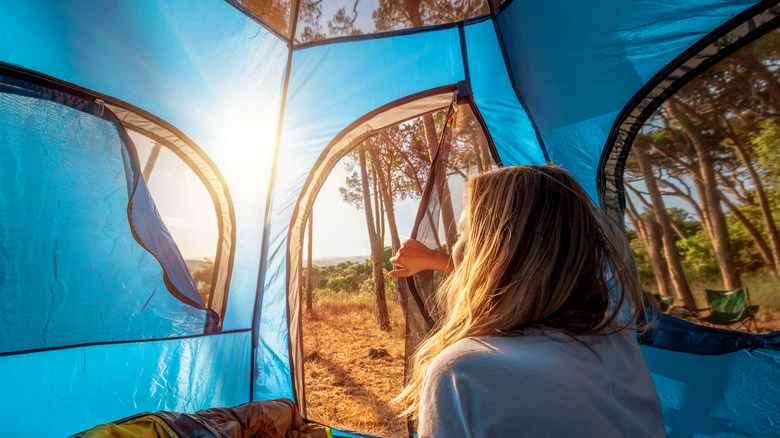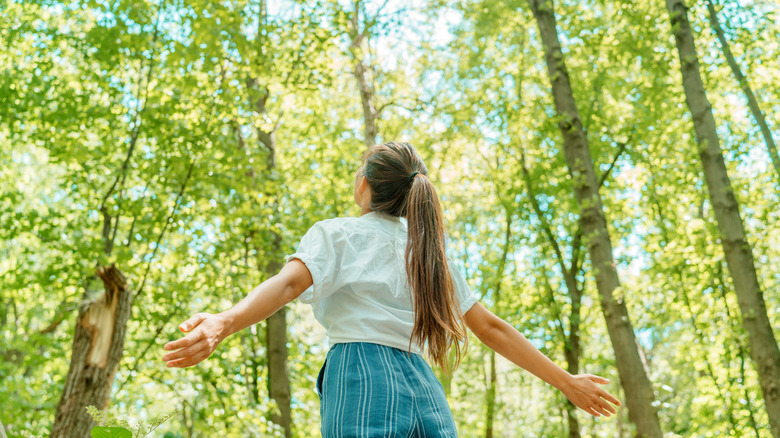What Happens To Your Body When You Sleep Outside
We know that camping isn't for everybody, but sleeping outdoors can be beneficial. Before all the city dwellers start throwing things and booing, let us explain.
We all have an inherent body clock that follows a circadian rhythm. According to the National Institute of General Medical Sciences (NIGMS), circadian rhythms are physical, mental, or behavioral changes that follow a 24-hour cycle and are primarily influenced by light and dark.
While humans were evolving and developing circadian rhythms, our day-to-day lives looked much different than they do now. The invention of the steam engine and the subsequent industrial revolution that followed had a drastic impact on the course of human history. It mechanized manufacturing, powered a widespread transportation network, and moved us from an agricultural society to a more urban one at a rapid pace. By the end of the 19th century, people were flocking to cities in droves, and by the 1920s, more people in America lived in cities than they did in rural areas for the first time ever.
While there's no denying that urbanization has been instrumental in the progression of human development in many ways, it has arguably done as much harm to our circadian rhythm as electric light. Living so far removed from nature's cycles can take a toll on our physical and emotional health, but a couple of nights out in nature is a great way to reset.
What we're missing when we're always inside
The Journal of Exposure Science & Environmental Epidemiology published a study that indicated the average American spends nearly 90% of their time inside. If that number seems shocking to you, it should, for we are not designed to be indoors.
"Our sensory system evolved in the natural world and when we're in those spaces, our brains become relaxed because these are things that we were designed to look at, hear and to smell," journalist and author Florence Williams told National Geographic.
A 2011 study published in Nature found that mood and anxiety disorders are much more prevalent in city dwellers, and the incidence of schizophrenia is greatly increased in those raised and living in cities. On the other side of that coin, it is widely acknowledged that fresh air and vitamin D have the ability to enhance brain function and memory, and improve mood. It should come as no surprise then that in countries like Scotland and Japan, more time in nature is being proposed as a real treatment for a multitude of ailments.
How can sleeping outside help?
According to NIGMS, our circadian rhythms affect hormone production, eating, and digestive patterns, in addition to our sleep schedules. Melatonin is produced based on the amount of light that enters through our eyes. If we are always looking at screens or turning electric lights on well into the evening, our bodies aren't able to produce the hormones that make us sleepy or wakeful at the optimal times of the day.
A 2013 study published in Current Biology had participants embark on a camping trip where they were not allowed access to technology. The results showed that participants' exposure to sunlight, coupled with the lack of blue light, had a positive effect on their circadian rhythms, shifting their sleep time back by 2 hours each night.
Whether you're gung-ho about camping or you're a bit hesitant about the endeavor, the need for a good outside-sleep is in your bones. Listen to the call!



